10 Places You're Most Likely To Get RSV, According to a Doctor

It's no secret that your chances of getting sick skyrocket during colder winter months. You're indoors more often, which allows viruses to transmit more seamlessly between people. And the cold, dry air doesn't do your immune system any favors. But the common cold and flu aren't the only illnesses to be wary of this winter. Respiratory syncytial virus (RSV) is another common respiratory virus affecting people of all ages. While RSV tends to be more severe in infants and older adults, it's still a serious illness to bolster your immune system against. If you're wondering about the places you're most susceptible to contracting RSV, you're not alone. We spoke with Leann Poston, MD, medical writer at Invigor Medical, who reveals the top 10 places you're most likely to encounter RSV.
RSV is extremely contagious and can spread via respiratory droplets when someone who has it sneezes or coughs, according to Yale Medicine. You can also contract it by touching a surface that's been contaminated and then touching your face soon after without properly sanitizing your hands.
Poston tells ETNT, "RSV is a common respiratory infection that occurs in the winter in the northern hemisphere. Most people who contract RSV develop cold symptoms such as a runny nose, congestion, wheezing, and cough. RSV can cause inflammation of the small airways in the lungs, leading to pneumonia. Since it is a respiratory virus transmitted through the air, avoid being in crowded enclosed spaces, wash your hands frequently, and avoid touching your face to reduce your risk of contracting RSV."
The first step to safeguarding your health against RSV is becoming aware of the following high-risk environments. Additionally, proactive measures like hand washing and avoiding close contact with sick people can reduce your chances of contracting RSV. So, without further delay, read on for the 10 places where you're most likely to get RSV. And when you're finished, be sure to check out The #1 Best Daily Habit for a Longer Life, According to Experts.
Daycare Centers
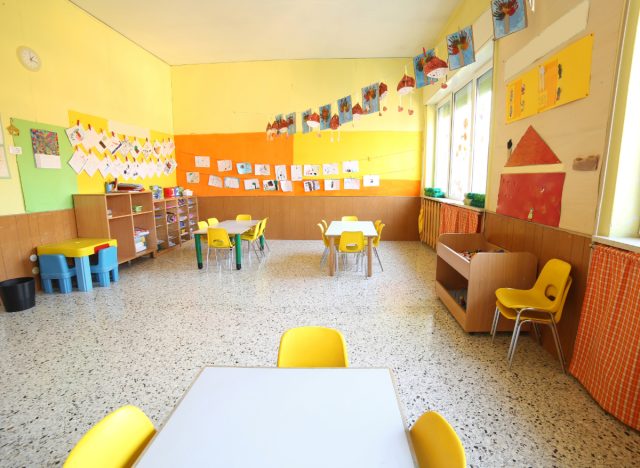
Daycare centers are hotspots for RSV transmission due to the close proximity of children and caregivers. Young children—especially those under the age of two—are more susceptible to severe RSV infections. Parents need to be vigilant about monitoring their child's health and follow daycare center guidelines to help prevent the spread of illnesses.
"RSV is common in young children and babies. Having multiple children together in close contact increases the prevalence of the disease," says Poston.
Schools

"Close contact and enclosed spaces increase the risk of RSV spread in schools," explains Poston.
Schools—especially preschools and elementary schools—are places where viruses like RSV can quickly spread between students and staff. The best practices to help mitigate RSV transmission risk in schools include regular handwashing, wearing face masks when sick, and routinely disinfecting high-touch surfaces.
Hospitals
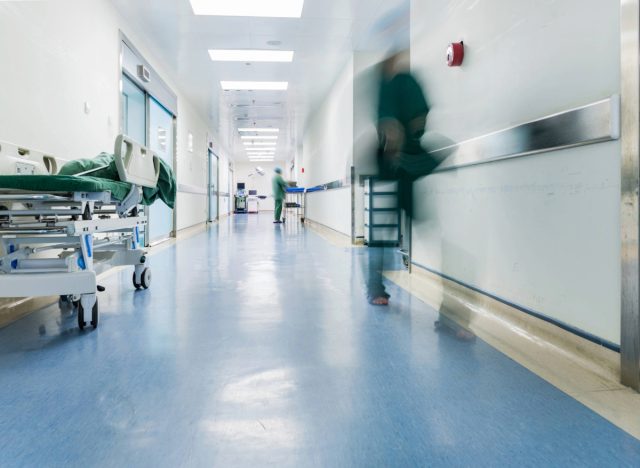
"Most children's hospitals are full of children with RSV infection during the winter months," states Poston.
Hospitals are brimming with bacteria and viruses, which is why they often witness RSV outbreaks during winter. Fortunately, hospitals implement strict infection control protocols, such as isolating patients with suspected or confirmed cases of RSV, to help prevent outbreaks.
Public Transportation
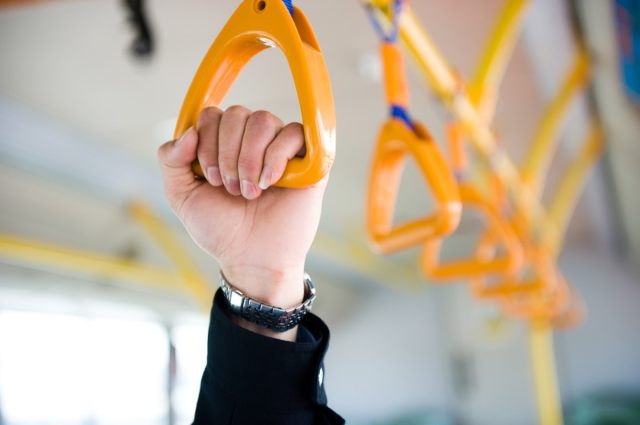
Buses, trains, subways, and planes are breeding grounds for respiratory viruses like RSV. Their crowded conditions and lack of ventilation increase the likelihood of virus transmission among passengers. To lower your risk of getting sick when using public transportation, consider wearing a mask, avoiding peak travel times, and practicing good hand hygiene.
"Infrequent cleaning and close contact on buses, subways, and trains can increase the risk of RSV spread," Poston adds.
Religious Institutions
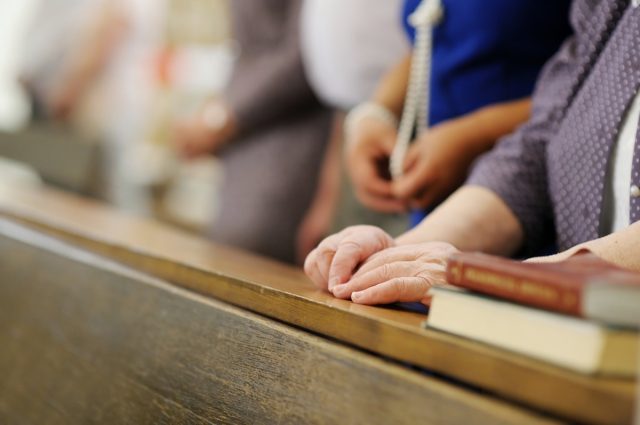
Poston tells us, "Large congregations gathered in enclosed spaces can increase RSV spread."
While religious institutions such as churches are places of community and gathering, the singing, hand-shaking, and close interactions during services can increase the spread of respiratory viruses. The next time you attend a service, consider using safety measures such as virtual services, face masks, and social distancing to reduce your RSV risk.
Restaurants

"Enclosed spaces, talking, and frequent face-touching can increase the risk in restaurants," says Poston.
Restaurants have many high-touch surfaces and shared spaces, such as dining tables and restrooms, that increase your likelihood of contracting RSV. To reduce transmission risk, restaurants can limit their seating capacity, ensure indoor spaces have proper ventilation, and encourage outdoor dining when possible.
Shopping Centers

"High-touch areas like shopping cart handles are a common source of disease transmission," Poston warns.
Shopping centers and large crowds go hand in hand, which creates an environment where RSV can easily spread. High-touch surfaces such as door handles, shopping carts, and elevator buttons can carry the virus and increase your risk of exposure. Protect yourself by wearing masks, washing your hands frequently, and avoiding crowded areas.
Long-Term Care Centers
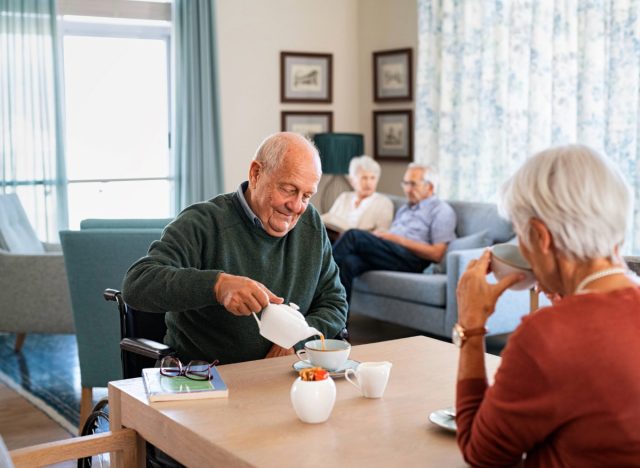
Long-term care centers like nursing homes and assisted living facilities house elderly folks who are more vulnerable to severe RSV infections. The close living quarters and shared amenities increase the chances of RSV spreading between residents and staff.
Poston cautions, "Older adults with chronic disease are at increased risk of contracting RSV."
Workplaces

"When employees cannot stay home when they are sick, workplaces become a risk environment," explains Poston.
Offices, meeting rooms, and break areas can be RSV hotspots. Many workplaces are crowded and have poor ventilation, increasing the risk of RSV transmission. Employers can promote a healthy work environment by offering the option to work from home, encouraging mask-wearing, and regularly disinfecting high-touch surfaces.
Fitness Centers
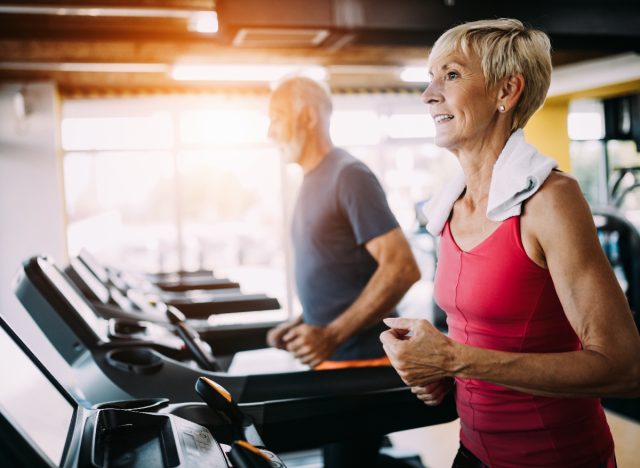
"Deep breathing during exercise, high-touch surfaces, and close contact between members increases the risk of RSV spread in fitness facilities," says Poston.
Sweating and heavy breathing during exercise increases the spread of respiratory viruses like RSV. The next time you work out, practice social distancing, wipe down equipment before and after using it, and consider getting your exercise done at home.
- Source: Winter Illness Guide
- Source: Respiratory Syncytial Virus Infection (RSV)
- Source: RSV (Respiratory Syncytial Virus)









